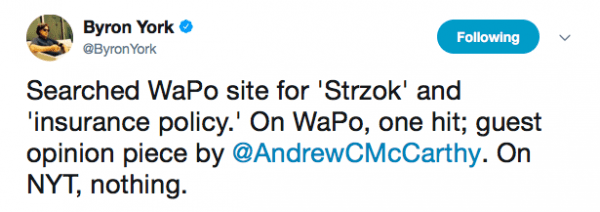REMEMBER THIS NAME AND REMEMBER THIS DATE: The name is Michael Horowitz. The date is Jan. 12, 2017. Horowitz is the Inspector-General of the Department of Justice. January 12, 2017, is the date Horowitz announced an investigation of these factors:
• Allegations that Department or FBI policies or procedures were not followed in connection with, or in actions leading up to or related to, the FBI Director’s public announcement on July 5, 2016, and the Director’s letters to Congress on October 28 and November 6, 2016, and that certain underlying investigative decisions were based on improper considerations;
• Allegations that the FBI Deputy Director should have been recused from participating in certain investigative matters;
• Allegations that the Department’s Assistant Attorney General for Legislative Affairs improperly disclosed non-public information to the Clinton campaign and/or should have been recused from participating in certain matters;
• Allegations that Department and FBI employees improperly disclosed non-public information;
• Allegations that decisions regarding the timing of the FBI’s release of certain Freedom of Information Act (FOIA) documents on October 30 and November 1, 2016, and the use of a Twitter account to publicize same, were influenced by improper considerations.
The Horowitz probe is why Peter Strzok’s amazing emails were discovered. As sensational as those emails are, the more important question is what occasioned their becoming available to the Horowitz investigators. The DOJ IG is nobody’s fool and his report is just over the horizon. Just ask American Thinker’s Thomas Lifson.
There are more than 70 IGs in the federal government in positions created in 1978 during the Carter administration. There have been some bad eggs among the IGs over the years but collectively, the IG community has been the unsung hero in efforts to expose and prosecute waste, fraud and abuse in government. Sen. Charles Grassley, R-Iowa, has been the IGs’ strongest advocate in Congress.
And there’s this: The journo community in the nation’s capital has been rumbling in recent days about a bombshell report supposedly being prepared for publication by the Washington Post that will ruin the careers of dozens of Members of Congress, from both parties.
Fasten your seatbelts, folks.
New deals every hour.


